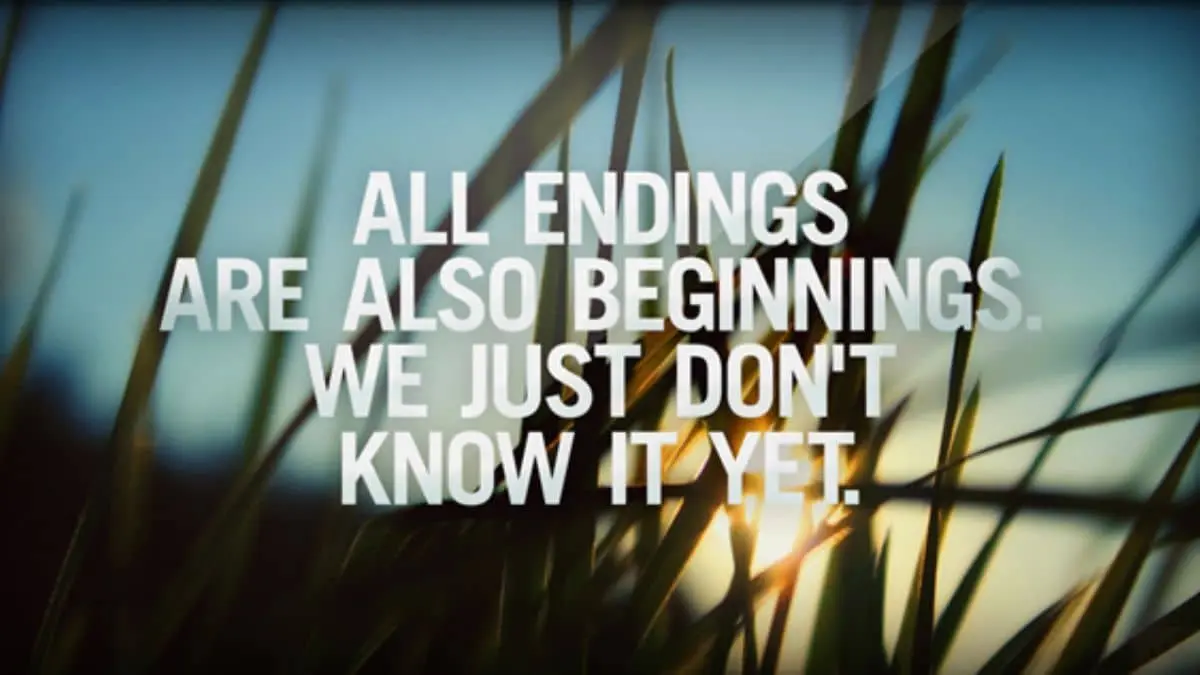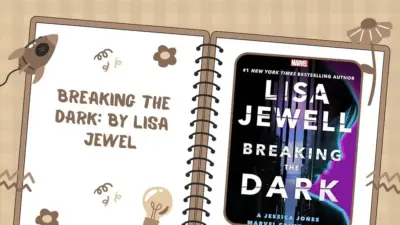Life is a continuous journey marked by a series of beginnings and endings. In this flow of existence, we often encounter moments where something significant comes to an end. These endings, whether they are relationships, careers, or phases of life, can bring about feelings of loss and uncertainty. However, there is a profound truth embedded in the quote, “All endings are also beginnings. We just don’t know it at the time.” This statement, attributed to author Mitch Albom in his book The Five People You Meet in Heaven, carries deep wisdom that can transform our perspective on life’s transitions. In this blog, we will explore the inner meaning behind this quote and how it can help us navigate the complexities of life.
Understanding the Quote
The Nature of Endings
Endings are an inevitable part of life. They can come in various forms: the conclusion of a cherished relationship, the loss of a loved one, the end of a job, or the transition from one stage of life to another. Endings often evoke strong emotions such as sadness, grief, and fear. We tend to view them as final, as moments that mark the cessation of something valuable. This perception can lead to a sense of despair and confusion.
The Promise of Beginnings
The quote suggests that every ending carries within it the seeds of a new beginning. When one chapter closes, another inevitably opens. However, these new beginnings are not always immediately apparent. The initial reaction to an ending is often dominated by a focus on what has been lost rather than what could be gained. The beauty of this quote lies in its reminder that time and perspective reveal the opportunities that lie ahead.
The Cycle of Life: A Continuous Journey
The Concept of Impermanence
Life is characterized by impermanence. Everything is in a constant state of flux. Just as seasons change and the natural world evolves, so too do our lives. The concept of impermanence can be both comforting and challenging. It reassures us that difficult times will pass, but it also reminds us that nothing lasts forever. Embracing this reality can help us see endings as natural parts of life’s cycle.
Personal Growth Through Transitions
Endings often push us out of our comfort zones. They force us to confront new realities and adapt to change. While this process can be uncomfortable, it is also a powerful catalyst for personal growth. When we face endings, we are given the chance to reflect on our experiences, learn from them, and evolve into more resilient and enlightened individuals.
The Hidden Opportunities in Endings
New Paths and Possibilities
When we are caught up in the midst of an ending, it can be difficult to see beyond the immediate loss. However, endings often create space for new paths and possibilities that we may not have considered before. A job loss, for instance, might lead to the discovery of a new passion or career path. The end of a relationship could open the door to deeper self-understanding and future connections.
Strengthening Resilience and Adaptability
Endings test our resilience and adaptability. They challenge us to cope with change and find new ways to move forward. This process of adaptation strengthens our ability to handle future uncertainties. By navigating through endings, we build a toolkit of coping mechanisms and strategies that serve us well in other areas of life.
Examples from Real Life
Historical Figures
History is replete with examples of individuals who turned endings into new beginnings. Consider Thomas Edison, whose numerous failures in inventing the light bulb eventually led to success. Each failure marked the end of a particular approach, but it also served as the beginning of a new, more informed attempt.
Personal Stories
Many people have personal Stories of transformation that began with an ending. Whether it’s the loss of a job that led to starting a successful business or the end of a relationship that resulted in finding true love, these stories highlight the potential for renewal and growth inherent in every ending.

Embracing the Wisdom of the Quote
Cultivating Patience and Trust
Understanding that all endings are also beginnings requires patience and trust. It is essential to give ourselves time to grieve and process the end of one chapter before fully embracing the start of a new one. Trusting that new opportunities will arise, even if they are not immediately visible, can help us maintain a positive outlook.
Reflecting on Past Endings
Reflecting on past endings in our lives can provide valuable insights. By examining how previous transitions have led to new beginnings, we can cultivate a sense of confidence in our ability to navigate future changes. This reflection can also highlight the growth and progress we have made as a result of past experiences.
Practical Steps for Navigating Endings
Mindfulness and Acceptance
Practicing mindfulness can help us stay present and accept the reality of endings without becoming overwhelmed by negative emotions. Mindfulness allows us to acknowledge our feelings, understand them, and then let them go, making room for new experiences and opportunities.
Seeking Support and Guidance
During times of transition, seeking support from friends, family, or professional counselors can be incredibly beneficial. Talking about our feelings and receiving guidance can provide clarity and reassurance, helping us to see the potential for new beginnings.
Setting Intentions for the Future
As we move through an ending, setting intentions for the future can help us focus on what we want to achieve in the next chapter of our lives. Intentions provide direction and purpose, guiding us toward new goals and aspirations.
Conclusion
The quote “All endings are also beginnings. We just don’t know it at the time.” offers profound wisdom for navigating the inevitable transitions of life. By understanding that endings are not final but rather the start of something new, we can approach life’s changes with a sense of hope and possibility. Embracing this perspective allows us to see the hidden opportunities in every ending, fostering resilience, personal growth, and a deeper appreciation for the continuous journey of life.
Also Read: And now that you don’t have to be perfect, you can be good



